What Size Boiler Do I Need for My Home?
- How power output is measured
- What size boiler do I need? How to calculate this
- Examples by heating type
Commonly referred to as size, the power output of a boiler is measured in kilowatts (kW), with more powerful models featuring bigger sizes. When it comes to figuring out how big you need your boiler to be, you will have to take into consideration various elements of your home, such as how many radiators you have.
What size boiler do I need? You may not need as big a boiler as you might first think. How big is your hot water demand? Can your current boiler cope with demand?
This article will explain the reason behind getting the right boiler size. It will also go over how to calculate what you need based on your requirements.
Already know what size boiler you need? Use our quote comparison tool to find out how much you’d pay. It only takes a minute.
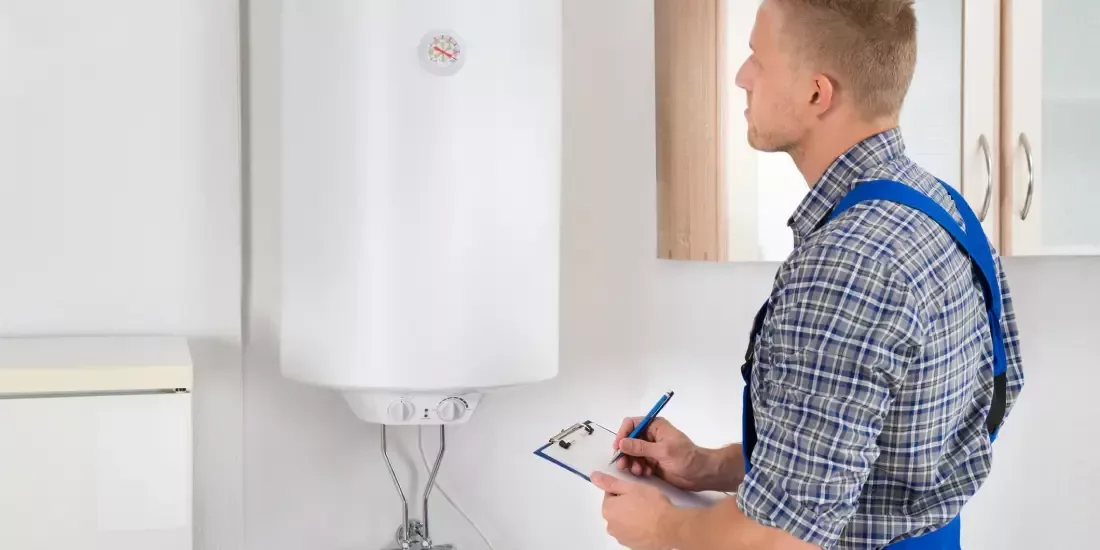
What's On This Page?
Click the links below and head straight to a specific section of the article.
Why Boiler Size Matters
In terms of wasted energy, you’ll want to make sure that your boiler is correctly delivering the right amount of power as and when it’s needed. Having too powerful a boiler for a small home can lead to inefficiencies. Similarly, a small boiler in a large home will wear out much more quickly.
What size boiler do I need for my home? This mainly depends on its size and how it’s heated. There are simple ways in which you can calculate the right power your boiler should be. Getting the right size boiler can cost you less too.
How to Choose the Right Boiler Size
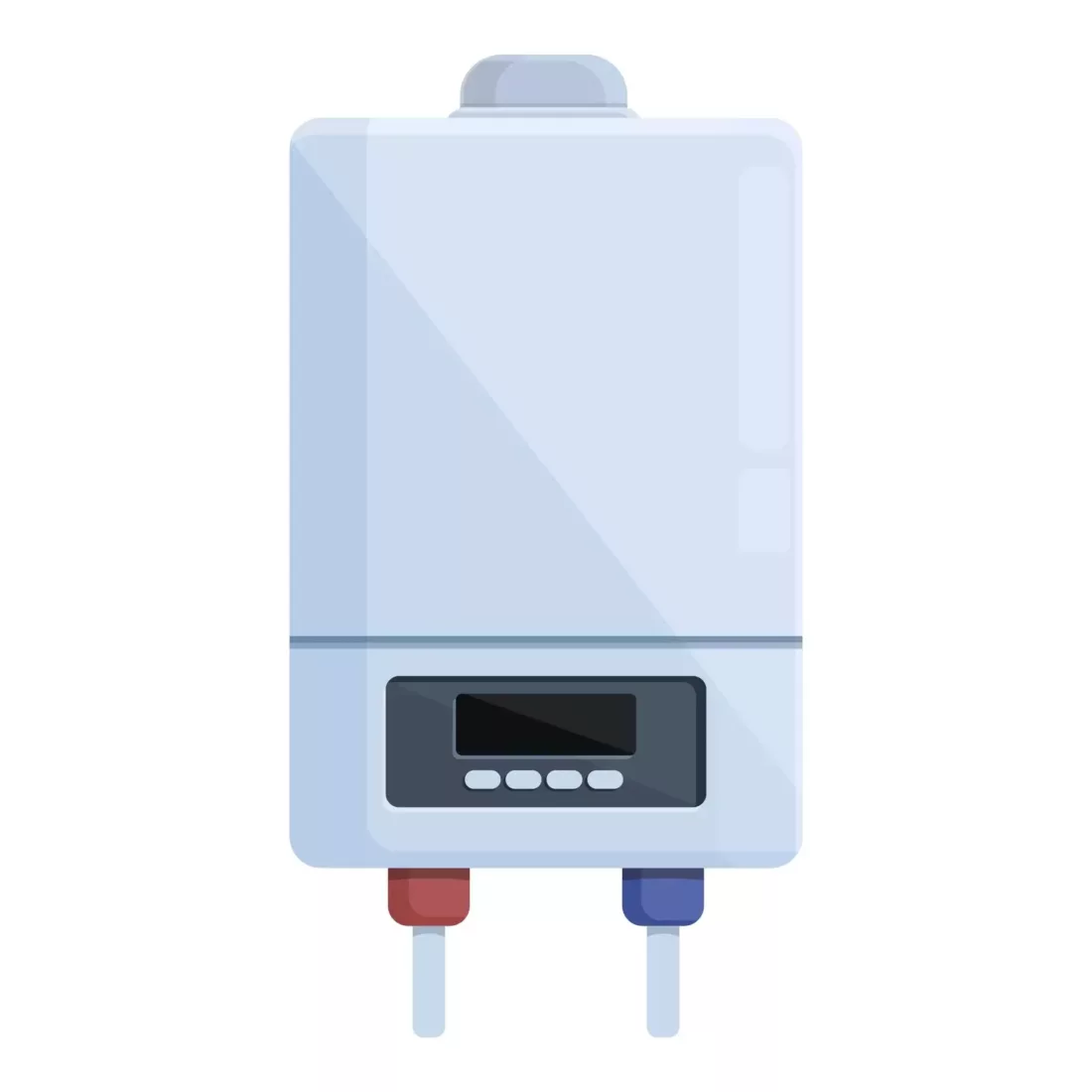
The factors that you need to consider for your boiler size include:
Number of bathrooms
Number of bedrooms
Future plans
Boiler type
Insulation quality
What size boiler do I need based on these factors? The answer could be different for some of these elements, but you should generally arrive at the same conclusion overall.
Number of Bathrooms
This is essentially asking how much hot water demand there is in the home. The more bathrooms and showers there are, the bigger boiler size you’d generally need. If multiple occupants want to shower or bathe at the same time, you will need a higher power output to cope.
What size boiler do I need for a large household? Bigger households tend to cope better with a heat-only boiler system. This is also the case if you suffer from low water pressure, as the cold water tank generates pressure with the help of gravity.
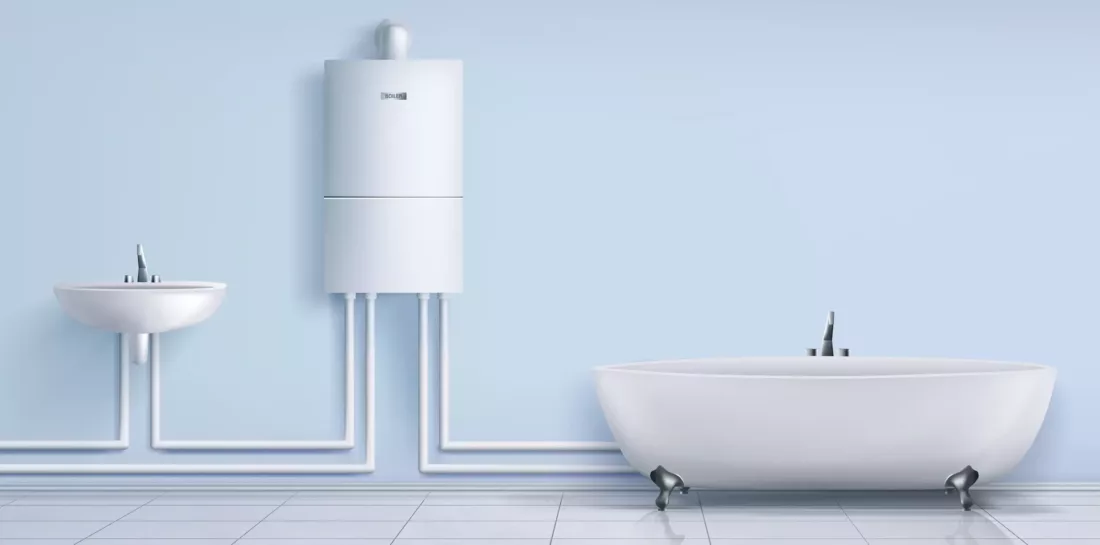
Number of Bedrooms
Although somewhat tied to the home’s hot water demand, more bedrooms also means more heating demand. More radiators, for example, will need a bigger boiler to cope. As the central heating is either entirely on or off, you can easily estimate your boiler’s optimum power based on the number of radiators in different rooms.
What size boiler do I need with only a few bedrooms? You can get away with a much less powerful boiler if you don’t have as many occupants.
Future Plans
Modern boilers are capable of lasting around 15 years, so when it comes to deciding on a new boiler, you’ll want to make sure that it will cover any changes that might happen in future. For example, an extension to the home or an addition to the family will increase your heating and hot water demands, so this needs to be reflected in your calculations.
What size boiler do I need if I won’t be in my current home in 15 years’ time? It’s still important to choose the right size boiler for your home’s needs. This will keep bills down and efficiencies where they should be.
Boiler Type
Not all boiler sizes compare equally. Different types give measurements in different ways. A combi boiler’s kW output will refer to how much hot water it can produce, whereas a heat-only boiler measures the amount of heat it can produce.
What size boiler do I need with a combi? You will still need to calculate your boiler’s power output based on your home setup.
Insulation Quality
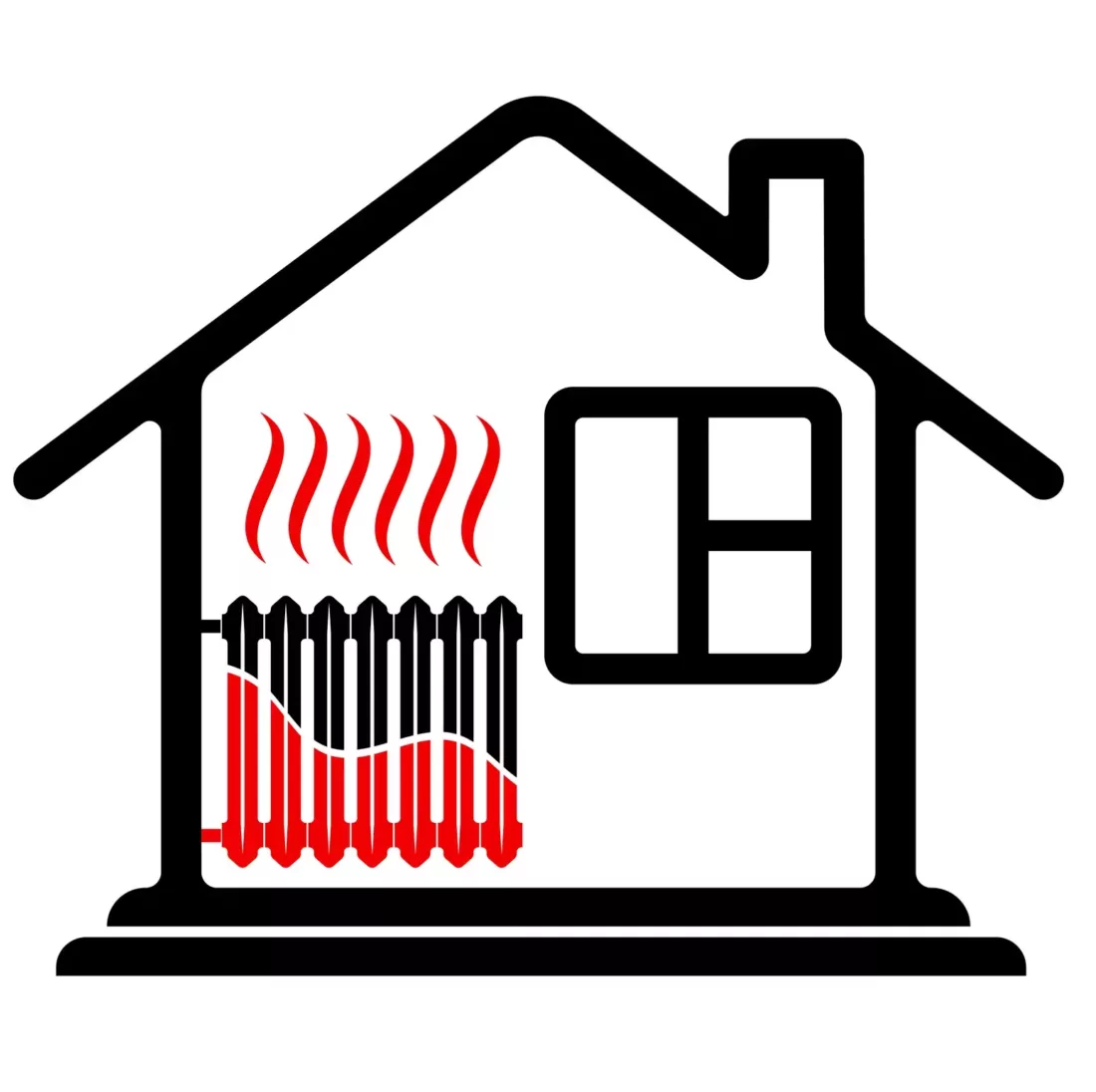
We all know that the better your insulation is, the less hard your heating system has to work. Set temperatures can be maintained more easily as long as effective insulation is in place. Your boiler won’t need to be as powerful as long as your home is well insulated.
What size boiler do I need in a home without insulation? It would be far better to insulate your home first before getting a boiler in this instance. With no insulation, you will be literally burning money to keep your home warm.
Installer’s Perspective
Before you get your new boiler installed, your operative will be able to provide an insulation assessment. This can help you see how much heat you might lose if you stick with your existing insulation. Heat can be lost through the floors and windows, as well as the walls.
Ask the installer, “What size boiler do I need?”. When making a recommendation, your installer will give you a figure based on the coldest days of the year. If you upgrade your insulation, this can be scaled back.
What size boiler do I need if my home is in good condition? After an assessment, you should be in a good position to calculate how big your boiler needs to be.
What Size Boiler Do I Need? Calculations to Make
It may seem like a difficult task trying to convert your household’s heating needs into the stats that are displayed on a boiler’s label, but it can be done. There are a number of ways to do this as well, so you won’t have to worry.
What size boiler do I need to make calculations for? This is what you’ll be finding out, based on the factors outlined below.
Number of Bathrooms and Showers
As a rule of thumb, you can calculate how powerful your boiler needs to be based on the number of bathrooms and showers you have. When added together, you can get a boiler size from 26kW as the minimum requirement.
What size boiler do I need with several shower outlets? This could be anything from 30–43kW or more, as seen in the graph below.
Number of Bedrooms
As well as bathrooms, you will need to consider how many bedrooms your property has. These numbers work together to give a better idea about how powerful your boiler needs to be.
What size boiler do I need with 2 bedrooms and 2 bathrooms? This can be from 26–29kW, as seen in the table below.
Number of Radiators
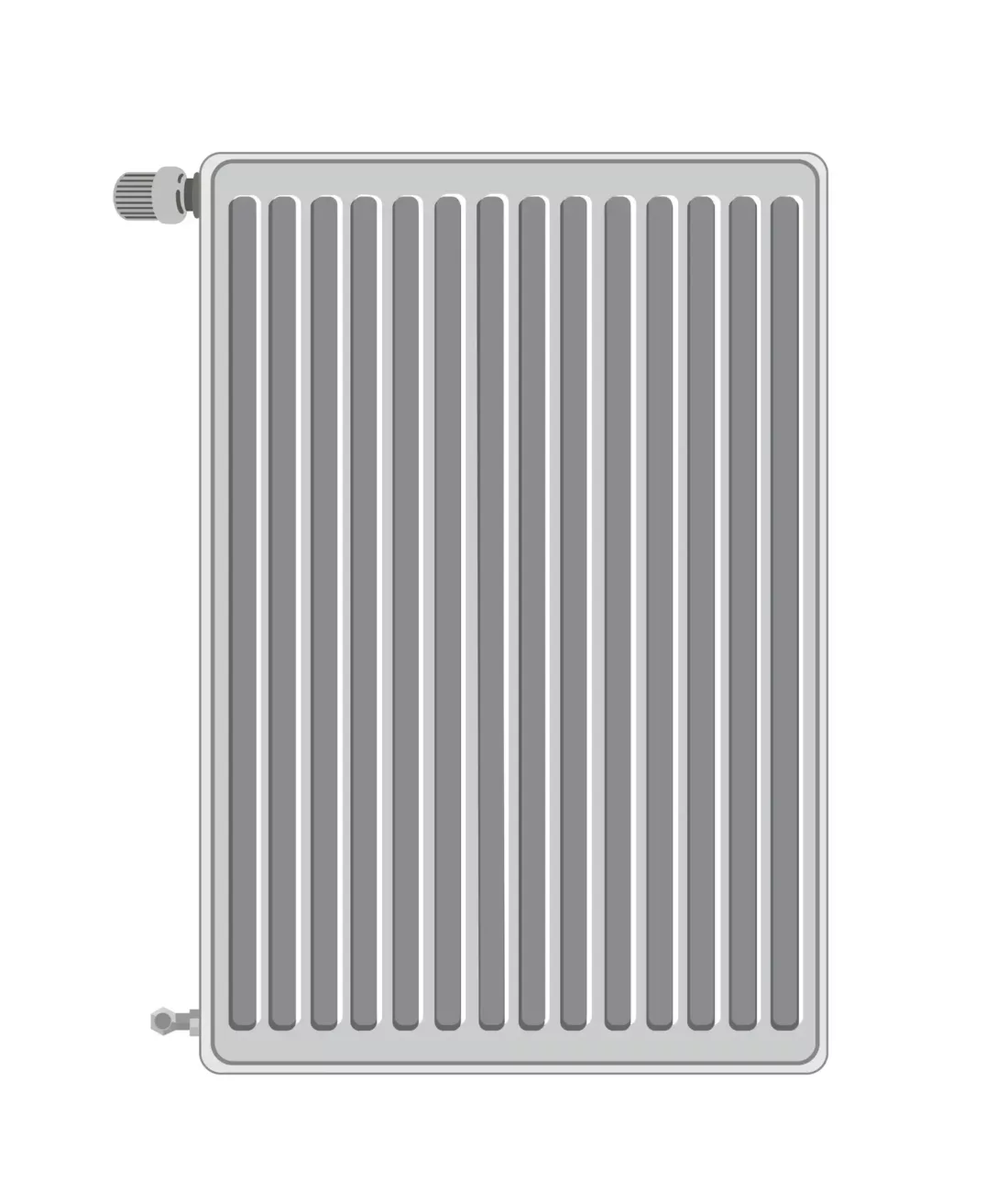
Radiators are the most common form of home heating, so the more you have, the bigger your boiler needs to be. This can be linked to the number of bedrooms and bathrooms there are.
What size boiler do I need with multiple radiators? As you can see from the graph below, even adding a few more radiators won’t increase the demand from your boiler all that much. The difference between 6 and 8 radiators is only 3kW.
This calculation works by multiplying the number of radiators by 1.5kW and then adding 3kW for every hot water tank you have.
Boiler Type
The setup of your heating system will play a big factor in how much power you need. Combi boilers can be worked out using the table above, but bear in mind that these aren’t usually used for larger homes.
What size boiler do I need with a system boiler? Similar to heat-only boilers, you can work this out using the number of radiators, as indicated in the graph above.
Examples of Boiler Sizes by Type
Combi
What size boiler do I need as a single occupant in a 1 bed flat? As the heating and hot water demand is relatively low, and there’s only 1 bedroom and 1 bathroom, you could get away with a small 26kW combi boiler.
System
Typical Family
What size boiler do I need for an average family? If we take a 3 bed house as the average for a family in a semi-detached property, a 24kW system boiler could cover your needs. This would assume 3 bedrooms, 1 bathroom and 1 shower.
Large Family
What size boiler do I need for a large family? A large family in a 5 bed house could use a 32kW boiler, assuming there are 3 showers and 2 bathrooms.
So, What Size Boiler Do I Need?
Whether you have a hot water storage cylinder or are in a smaller property, you can find the right boiler to suit your needs. An expert heating engineer will be able to visit your home and tell you precisely what would work well, based on your home.
What size boiler do I need by type? All types of boiler will heat your home differently, but it’s important to choose the boiler type that’s right for you. Take a look at Combi Boilers: The Ultimate Guide to learn more about combination boilers.
Alternatively, find out how much you’d pay by clicking on the button below.
Related articles
View all Boiler articles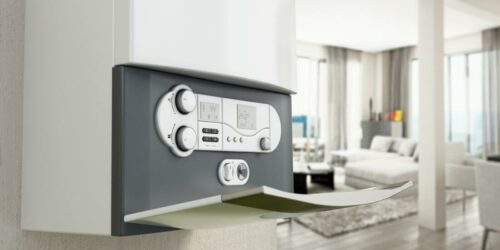
Top Tips When Buying a New Combi Boiler

Save on Heating by Keeping Your Boiler at 60°C

Smart Boiler Installation: All You Need to Know
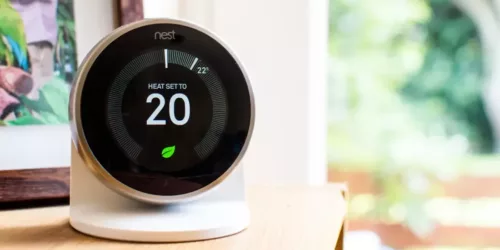
Smart Thermostat Guide: All You Need to Know

Boiler Systems: All You Need to Know About Domestic Boilers
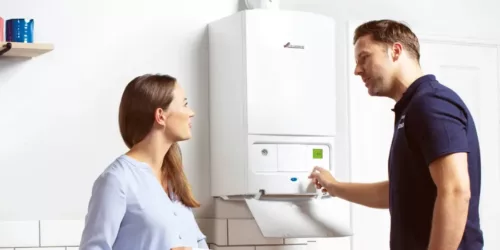
The Complete Guide to Worcester Bosch Boilers

Hydrogen Boilers: The Ultimate Guide







